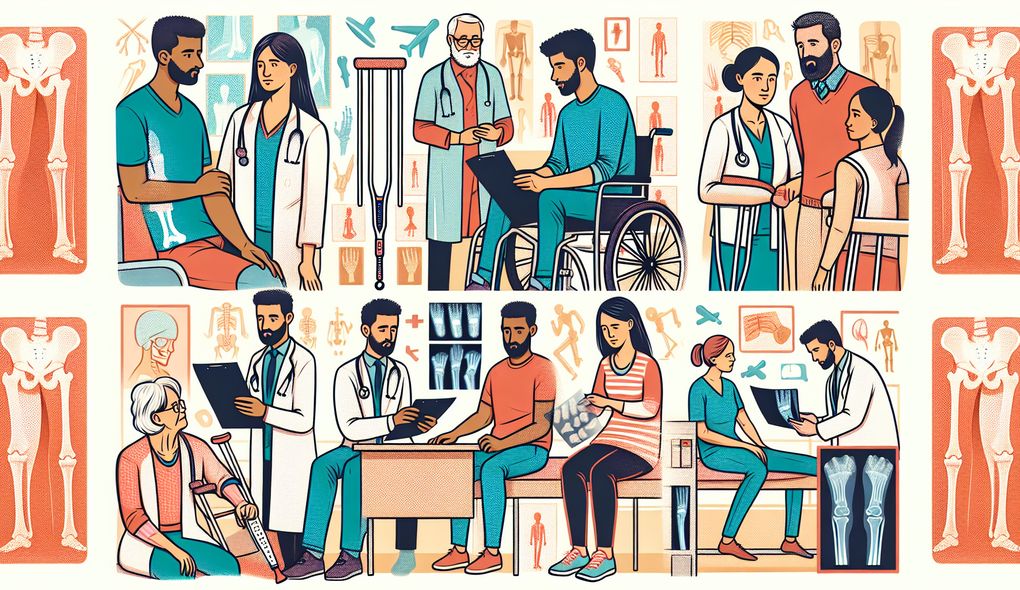Tell us about a time when you had to provide post-operative care to a patient.
JUNIOR LEVEL

Sample answer to the question:
I had the opportunity to provide post-operative care to a patient who underwent a knee replacement surgery. After the surgery, the patient was transferred to the recovery room where I closely monitored their vital signs, such as heart rate, blood pressure, and oxygen levels. I ensured their pain was managed effectively by administering prescribed pain medications and monitoring their response. I assisted the patient in performing mobility exercises to prevent stiffness and improve range of motion. Additionally, I educated the patient on proper wound care and provided instructions on how to use assistive devices, such as crutches. Throughout the post-operative period, I communicated with the patient, addressing any concerns or questions they had, and providing emotional support. The patient recovered well and expressed satisfaction with the care they received.
Here is a more solid answer:
In my role as an orthopedic specialist, I had the opportunity to provide post-operative care to a patient who underwent a knee replacement surgery. Communication played a crucial role in ensuring the patient's well-being and recovery. I maintained open and clear communication with the patient, explaining the post-operative care plan, addressing their concerns and questions, and providing emotional support. I regularly collaborated with the nursing staff and physical therapists to ensure a holistic approach to patient care. To provide comprehensive patient care, I closely monitored the patient's vital signs, assessed their pain levels, and adjusted pain medications accordingly. I also assisted the patient in performing mobility exercises to prevent stiffness and improve range of motion. Additionally, I educated the patient on proper wound care and provided instructions on using assistive devices, such as crutches. The patient's progress was diligently documented, and their feedback was sought to continually improve the quality of care.
Why is this a more solid answer?
The solid answer expands on the basic answer by providing specific details about the candidate's communication skills, ability to provide comprehensive patient care, and collaboration with other healthcare professionals. It demonstrates the candidate's clear understanding of the importance of communication in patient care and their ability to work collaboratively in a multidisciplinary team. However, the answer could be further improved by including more examples of problem-solving skills and highlighting the candidate's commitment to continued education and professional development.
An example of a exceptional answer:
As a junior Orthopedic Specialist, I had the privilege of providing post-operative care to a patient who underwent knee replacement surgery. Effective communication was at the core of providing exemplary care. I established rapport with the patient, explaining the post-operative care plan in detail and addressing their concerns and anxieties. I regularly collaborated with the nursing staff, physical therapists, and other healthcare professionals to ensure a coordinated and comprehensive approach to patient care. By actively participating in interdisciplinary team meetings, I contributed to the development of individualized treatment plans and rehabilitation strategies. In terms of patient care, I closely monitored the patient's vital signs, assessed their pain levels using validated pain scales, and personalized the pain management plan accordingly. I employed evidence-based practices to promote early mobilization, assisting the patient in gradually increasing their weight-bearing activities and guiding them through therapeutic exercises to improve joint flexibility and muscle strength. Through thorough wound care, with attention to infection prevention practices, I ensured optimal healing. The patient's progress and outcomes were meticulously documented, and I actively sought their feedback to continually enhance the quality of care. To stay informed about the latest advancements in orthopedic medicine, I regularly attended conferences, completed relevant continuing education courses, and engaged in self-directed learning. This allowed me to provide the patient with the most up-to-date and innovative approaches to post-operative care, leading to improved outcomes and patient satisfaction.
Why is this an exceptional answer?
The exceptional answer goes above and beyond by providing more specific details and showcasing the candidate's problem-solving skills, commitment to continued education, and professional development. It highlights the candidate's ability to establish effective communication, collaborate with a multidisciplinary team, and provide personalized and evidence-based care. The answer also demonstrates the candidate's commitment to staying updated on the latest advancements in orthopedic medicine. To further improve, the candidate could provide examples of any challenges they faced during the post-operative care and how they overcame them.
How to prepare for this question:
- Reflect on past experiences where you have provided post-operative care and identify specific examples that highlight your communication, patient care, and collaboration skills.
- Familiarize yourself with the post-operative care protocols and guidelines for common orthopedic procedures, such as joint replacements and fracture repairs.
- Stay up to date with the latest advancements in orthopedic medicine by reading research articles, attending conferences, and participating in relevant continuing education courses.
- Practice discussing your experiences providing post-operative care in a clear and concise manner, ensuring you emphasize the positive impact you had on patient outcomes.
- Prepare examples of patient cases where you faced challenging situations during post-operative care and explain how you effectively addressed those challenges.
What are interviewers evaluating with this question?
- Communication
- Patient Care
- Collaboration

